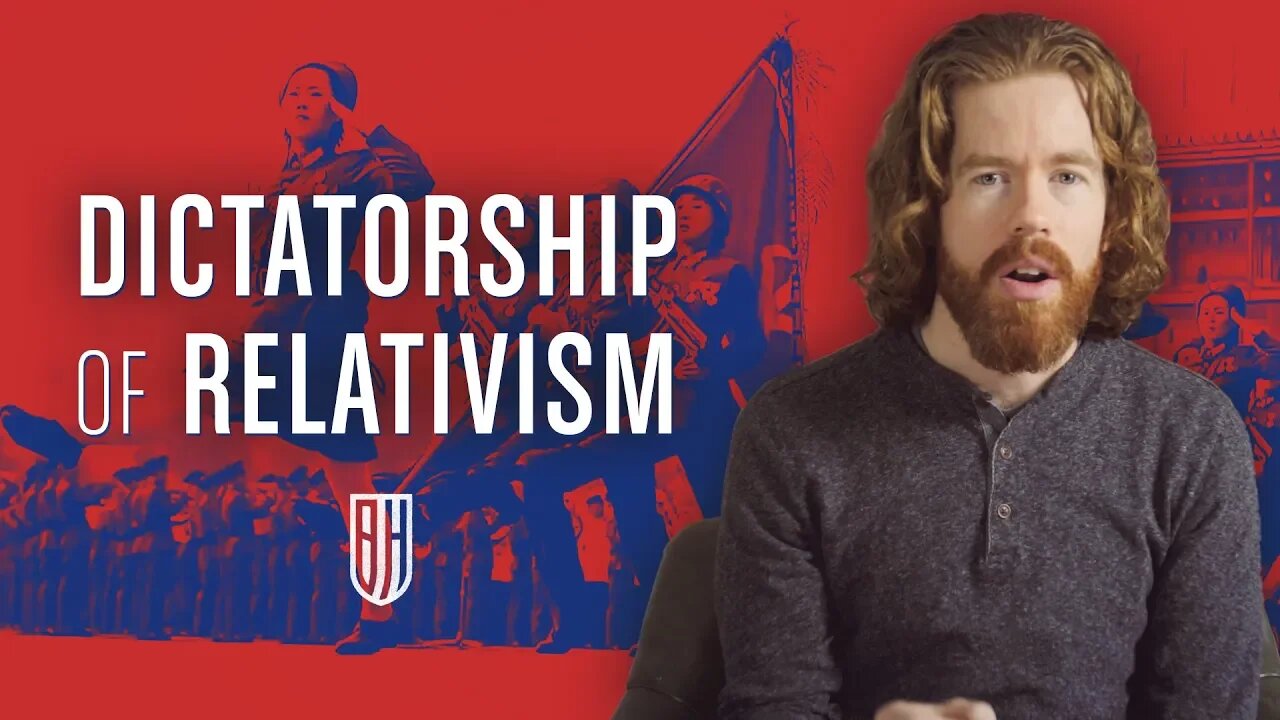Premium Only Content

The Dictatorship of Relativism
Franciscan University of Steubenville graduate theology programs: https://franciscan.university/bh/
Music written and generously provided by Paul Jernberg. Find out more about his work as a composer here: http://pauljernberg.com
Pope Benedict, when he was still Cardinal Ratzinger, coined a phrase that I’ve returned to often in attempts to penetrate what exactly he meant by it. He described the moral landscape of modern society as a “dictatorship of relativism”.
What stood out to me, specifically, was the word dictatorship. Because I could always appreciate the logical problems with relativism, but I was always a bit struck why he associated it with such a specific term – dictatorship. What is the association?
So for a little helpful context, relativism, in this sense, means an individualistic and subjective approach to morality probably best summarized by George Bernard Shaw who said the “the only Golden rule is that there are no golden rules.”
The trend in popular thought in modernist Western society has been towards embracing a sense that morality is a social convention. There is no, at bottom, objective morality. What we think of as right or wrong is something that has emerged out of some societal consensus and then adapted.
The evidence for this claim is that because people don’t always agree about right and wrong, there must not be an actual, objective, right and wrong. But just because there can be multiple answers to a question, it doesn’t follow that there is no answer to the question.
I think of those order of operations math questions that you sometimes see posted on Facebook that bait people into blurting out the answer in the comments and if you read through them, you see an array of answers as diverse as Justin Trudeau’s cabinet.
But we don’t measure truth by the various answers that fallible human beings might offer to a problem. We ought to acknowledge that truth as well as morality is, generally, self evident and then we ought to do the hard work of trying to discover it.
But that requires an integrity and fortitude that modern people seem reluctant to confront. After all, it’s much easier to shy away from the high calling of moral virtue and then to console ourselves that there aren’t any true morals anyways, so we should just do whatever we want because it’s all just social convention.
-
 4:20
4:20
Brian Holdsworth
1 year ago $0.04 earnedThings Are Going to Change for Me Now...
2511 -

Adam Does Movies
10 hours agoReacting To The Golden Globe Awards Winners! - LIVE
184 -
 LIVE
LIVE
Flyover Conservatives
21 hours agoJ6: A True Timeline Documentary - In Honor of the 4 Year Anniversary of January 6 | FOC Show
959 watching -
 1:08:03
1:08:03
Donald Trump Jr.
9 hours agoJanuary 6th: More to Uncover, Live with Rep Loudermilk & Darren Beattie | TRIGGERED Ep.205
134K187 -
 1:00:48
1:00:48
The StoneZONE with Roger Stone
2 hours agoJustin Trudeau Throws In The Towel! w/ Canadian Hockey Legend Theo Fluery | The StoneZONE
13.4K9 -
 1:18:37
1:18:37
We Like Shooting
12 hours ago $0.41 earnedDouble Tap 391(Gun Podcast)
5.04K -
 2:32:43
2:32:43
FreshandFit
12 hours agoAndrew Wilson VS Gary The Numbers Guy Astrology & Numerology Debate!
83.7K51 -
 9:22:40
9:22:40
Dr Disrespect
11 hours ago🔴LIVE - DR DISRESPECT - TRIPLE THREAT CHALLENGE - RIVALS, PUBG, WARZONE
197K40 -
 1:15:03
1:15:03
Dad Dojo Podcast
9 hours ago $0.93 earnedEP16: Parenting: Then vs Now
23K -
 53:58
53:58
Sarah Westall
3 hours agoBlack Pilled vs Learning Reality and Maintaining Perspective, AI Reality w/ Johnny Vedmore
38.5K2